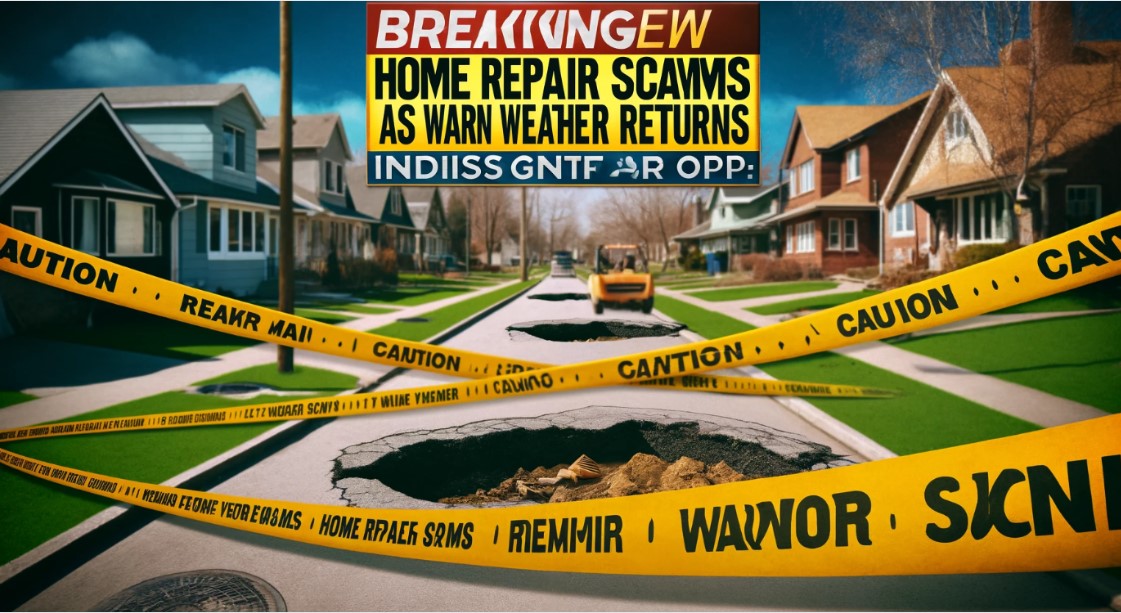As the warm weather returns, so do the risks of falling victim to home repair frauds. The Ontario Provincial Police (OPP) warns that fraudsters are not only persistent but also persuasive and sometimes aggressive in their tactics, making it crucial for homeowners to stay vigilant.
Recognizing Red Flags
The OPP highlights several key indicators that can help individuals identify potential home repair scams:
- Lack of Official Presence: Scammers often lack an official online presence or registration with reputable organizations like local chambers of commerce or the Better Business Bureau.
- Direct Contact or Solicitation: Fraudsters may contact homeowners directly at their residences or via telephone, using persuasive tactics to push unnecessary contracts or services.
- Professional Appearance: They may use professionally designed flyers and websites that give a legitimate appearance, but upon closer examination, reveal their fraudulent nature.
- Unsolicited Offers: Be cautious of unexpected visitors or solicitors offering items or services that you did not request or need.
- Deceptive Material Claims: If contractors claim to have “leftover” materials from another job without a clear explanation, exercise caution.
- Lack of Written Contracts: Ensure there is a written contract with a detailed quote upfront to avoid mid-job price changes due to alleged “unforeseen problems.”
- Cash Payments and Pressure Tactics: Scammers often target vulnerable populations like the elderly and pressure for cash payments with “today-only” deals.
- Upfront Payments: It’s a red flag if payment is demanded upfront before the job is completed, indicating potential fraudulent intentions.
Protecting Yourself
To protect yourself from falling prey to these scams, follow these actionable tips:
- Verify Credentials: Always verify the credentials and legitimacy of contractors before engaging in any agreements.
- Get Everything in Writing: Insist on a written contract with detailed quotes and terms to avoid unexpected changes or additional charges.
- Avoid Pressure Tactics: Be wary of high-pressure sales tactics, especially those that demand immediate payment or offer too-good-to-be-true deals.
- Research and Compare: Take the time to research and compare multiple contractors or service providers before making a decision.
- Trust Your Instincts: If something feels off or too good to be true, trust your instincts and seek further clarification or a second opinion.
Remember, if an offer seems too good to be true, it likely is. By staying informed and cautious, you can protect yourself and your home from falling victim to home repair scams.



